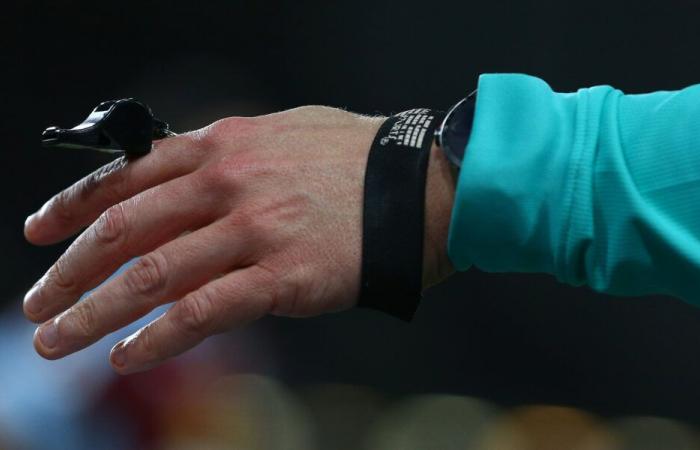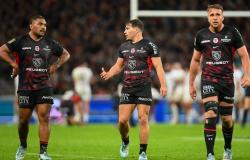Following LOSC's victory in the Derby du Nord on Saturday (0-2), the Lensois cried foul, judging that the match referee had made an error in awarding a penalty to the Mastiffs. Decryption.
It's a habit adopted by football fans: the setbacks of their respective teams are mainly based on the decisions taken by the refereeing body. This weekend again, on the occasion of the ninth day of Ligue 1 McDonald's, several clubs, from their managers to their players to their supporters, strongly criticized the choices made by the men with the whistle on the green rectangle. This was the case on the pitch at the Stade Bollaert-Delelis, during the opposition between LOSC and RC Lens played this Saturday (0-2), with a penalty awarded to the Mastiffs by Benoît Bastien in added time. A hand from Kevin Danso, who was then trying to tackle the leather in a duel with Mohamed Bayo, was flagged in the area (90+5′). Opposed to Brice Samba, Jonathan David did not tremble (90+8′) and tilted the match to one side, that of the Lille team, victorious (0-2).
This decision obviously created controversy. Faced with the debate that reigned on the web, Rémi Serpaud, football referee in National 2 and National 3, began to decipher the situation which led to Benoît Bastien's whistle. His educational interventions are regular, he speaks to give his opinion and try to shed light on certain facts of the game, and aim to bring a little perspective on the refereeing decisions taken in France. In the same way, this analysis does not claim to hold the absolute truth and is essentially based on the texts of the laws of the Game. Finally, each situation is unique and should not necessarily be compared with others.
“The problem with French football is the ego of certain referees”
At the final whistle of the match, Jean-Louis Leca, sports coordinator of RC Lens, strongly attacked the choice made by the refereeing body: “We really touched on the problem of French arbitration. It's called the ego of certain referees, because the rule is clear. When the ball is touched by any part of the body and then goes to the hand, there is no penalty. The rule is very clear. And on top of that, VAR calls it. If the VAR calls it, it’s only at one point… But some referees don’t change their minds”he said in the mixed zone following his team's defeat.
Rémi Serpaud begins his decryption by reflecting on these few statements from Lens: “Leca refers to a rule which would indicate that, if the ball touches any part of the body before touching the hand, the hand cannot be penalized. Except… there is no mention of this in the laws of the gamehe begins. It is in reality a criterion (among others) which should help us to decide whether there is hand or not. Very often this will result in an unsanctionable hand. But not systematically! The confusion therefore probably comes from a lack of understanding between what falls under the law and the criterion.he explains.
“Benoît Bastien estimated that Danso had amplified his body surface”
The points to remember, noted in the laws of the game, are the natural movement of the arm and the artificial increase in body surface area. Rémi Serpaud continues his analysis, emphasizing the fact that Kevin Danso's hand is first signaled by the linesman who then warns Benoît Bastien. He adds that the use of VAR must “allow the arbitrator to base his decision or not. This is about legitimizing the referee’s decision”which Benoît Bastien seems to have done when he went to see the images.
Let's come to the final decision. Everything depends, according to the analyzes of the referee playing in National 2, on the start of the action during which “Benoît Bastien believes that Danso had amplified his body surface” before launching into his tackle. “By amplifying this area, he took a risk which therefore led to the penalty and I tend to agree with him. […] There was no theft or scandal here”concludes Rémi Serpaud. The latter, through its presence on social networks, thus makes it possible to practice refereeing education, a habit which should be adopted among professionals to enlighten spectators and players in the game. It is in this sense that the installation of microphones on the main referees has been requested for several years.






